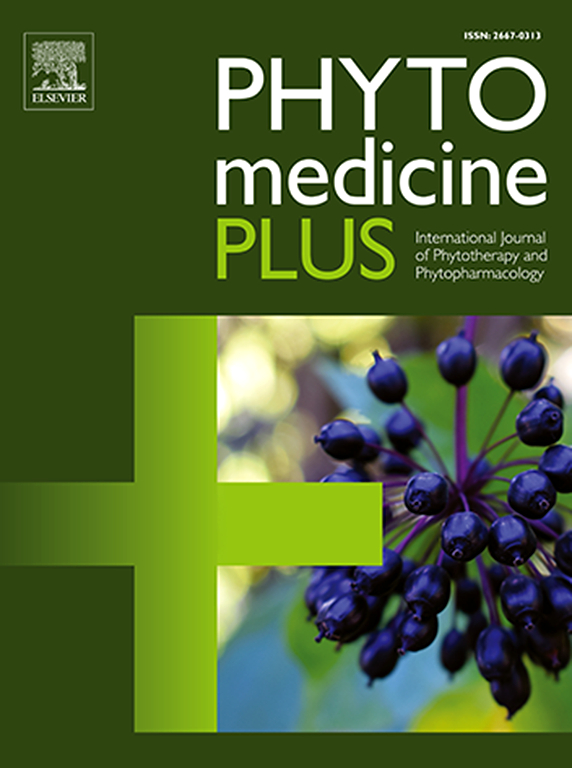橙皮苷对双酚a诱导的成年雄性Wistar大鼠精子损伤和睾丸凋亡具有保护作用
Q3 Pharmacology, Toxicology and Pharmaceutics
引用次数: 0
摘要
双酚a (BPA)是一种影响男性生育能力的普遍环境毒素。橙皮苷(HSD)是一种天然化合物,被广泛用作抗氧化剂,以对抗各种环境毒素引起的损害。橙皮苷具有显著的抗氧化、抗炎、抗癌、抗细胞凋亡等药理作用。本研究探讨橙皮苷对双酚a诱导的雄性大鼠精子损伤和睾丸凋亡的保护作用。35只雄性Wistar大鼠随机分为5组。对照组患者口服生理盐水1 mL;B组给予双酚A 50 mg/kg/体重口服,C组只给予橙皮苷200 mg/kg口服。D组和E组小鼠分别口服橙皮苷100和200 mg/kg,连续28 D,随后给予双酚a 50 mg/kg,连续28 D。测量精子特征(精子形态、活力和计数)等参数,测定睾丸bcl -2相关X蛋白(BAX)和b细胞淋巴瘤-2 (Bcl2)的免疫组化表达。BPA显著(P <;0.05)降低正常形态、进行性运动和精子数量。bpa暴露组BAX免疫蛋白高阳性表达,Bcl2免疫蛋白低阳性表达。暴露于双酚a前的橘皮苷预处理增加了进行性运动、精子数量和正常形态,并通过下调BAX表达减少了双酚a介导的细胞凋亡,而睾丸Bcl-2免疫阳性细胞表达水平升高。提示橙皮苷对双酚a诱导的成年雄性Wistar大鼠精子损伤和细胞凋亡具有保护作用。本文章由计算机程序翻译,如有差异,请以英文原文为准。

Hesperidin protects against spermatological damages and testicular apoptosis induced by Bisphenol-A in adult male Wistar rats
Bisphenol-A (BPA) is a prevalent environmental toxin affecting male fertility. Hesperidin (HSD) is a natural compound widely used as an antioxidant to combat damage induced by various environmental toxins. Hesperidin has remarkable pharmacological potential, which includes antioxidant, anti-inflammatory, anti-carcinogenic, and anti-apoptotic qualities. This study evaluated the protective effects of hesperidin on Bisphenol A-induced spermatological damage and testicular apoptosis in male rats. Thirty-five male Wistar rats were randomly divided into five equal-number groups. The control group orally received saline (1 mL); group B received Bisphenol A at 50 mg/kg/body weight orally, group C was administered with 200 mg/kg of Hesperidin only. Groups D and E orally received hesperidin at 100 and 200 mg/kg for 28 days, respectively, followed by treatment with 50 mg/kg Bisphenol-A for 28 days. The parameters, including sperm characteristics (sperm morphology, motility, and count), were measured, and the immunohistochemical testicular expression of Bcl-2-associated X protein (BAX) and B-cell lymphoma-2 (Bcl2) was determined. BPA significantly (P < 0.05) reduced normal morphology, progressive motility, and sperm count. High immunopositive cell expression of BAX immunoprotein and low immunopositive cell expression of Bcl2 immunoprotein were also observed in the BPA-exposed group. Hesperidin pretreatment before exposure to Bisphenol-A increased progressive motility, sperm count, and normal morphology and reduced Bisphenol A-mediated apoptosis by downregulating BAX expression, whereas testicular Bcl-2 immunopositive cell expression levels increased. Our findings suggest that hesperidin may protect against spermatological damages and apoptosis induced by Bisphenol-A in adult male Wistar rats.
求助全文
通过发布文献求助,成功后即可免费获取论文全文。
去求助
来源期刊

Phytomedicine Plus
Medicine-Complementary and Alternative Medicine
CiteScore
3.70
自引率
0.00%
发文量
178
审稿时长
81 days
期刊介绍:
 求助内容:
求助内容: 应助结果提醒方式:
应助结果提醒方式:


